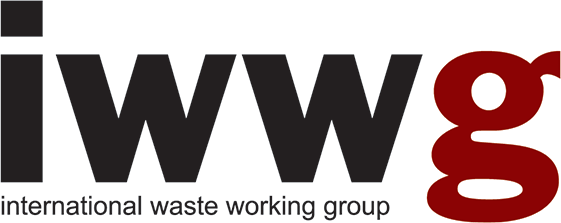VISIBILITY OF FUNDAMENTAL SOLID WASTE MANAGEMENT FACTORS IN DEVELOPING COUNTRIES
- Erni Mariana Mukhtar - Centre for Environmental Science, Faculty of Engineering & the Environment, University of Southampton, United Kingdom
- Ian D. Williams - Centre for Environmental Science, Faculty of Engineering & the Environment, University of Southampton, United Kingdom
- Peter J. Shaw - Centre for Environmental Science, Faculty of Engineering & the Environment, University of Southampton, United Kingdom
- Available online in Detritus - Volume 01 - March 2018
- Pages 162-173
Released under CC BY-NC-ND
Copyright: © Cisa Publisher
Abstract
The development of solid waste management (SWM) has been closely related to factors that influenced waste practices in the past and have shaped contemporary waste management systems. Multiple influencing factors need to be considered if SWM is to be effective. We have identified non-measurable or “invisible” factors that are not easily quantifiable or routinely measured but may influence local waste management practices and behaviour. Although the degree of influence of invisible factors is varied and sometimes vague in terms of impact, they serve as a starting point to design more effective waste management strategies. The aim of this study was to identify factors in solid waste management and classify them into two broad categories: “visible” (usually measurable by specific indicators or scales, quantifiable, considered in decision-making and implementation processes, and publically accessible) and “invisible” (not usually measured or quantified but still likely to influence waste generation, behaviour and operational practices, and perceptions about waste). A PESTLE (Political, Environmental, Social, Technological, Legal and Economic) analysis was employed as the basis for categorization. We identified 43 fundamental factors that were divided into the six different PESTLE categories. Experts in waste management were consulted via a Delphi survey and were found to consider 34 (79%) of these 43 fundamental factors to be visible and 9 (21%) invisible. This study highlights the need to adopt new perspectives regarding the role of these fundamental factors in SWM and to understand better the nature and extent of their influence on progress towards cost-effective, efficient, locally-optimised and sustainable waste management systems.Keywords
Editorial History
- Received: 15 Jan 2018
- Revised: 05 Mar 2018
- Accepted: 20 Mar 2018
- Available online: 31 Mar 2018
References
Baabereyir, A., 2009. Urban environmental problems in Ghana: A case study of social and environmental injustice in solid waste management in Accra and Sekondi-Takoradi. (Doctoral dissertation). University of Nottingham, UK.
Bai, R., Sutanto, M., 2002. The practice and challenges of solid waste management in Singapore. Waste Manag. 22, 557–567.
Bandara, N.J.G.J., Hettiaratchi, J.P. a, Wirasinghe, S.C., Pilapiiya, S., 2007. Relation of waste generation and composition to socio-economic factors: A case study. Environ. Monit. Assess. 135, 31–9.
Barr, S., 2007. Factors influencing environmental attitudes and behaviors: A U.K. case study of household waste management. Environ. Behav. 39, 435–473.
Binder, C.R., Mosler, H.J., 2007. Waste-resource flows of short-lived goods in households of Santiago de Cuba. Resour. Conserv. Recycl. 51, 265–283.
C.Gibson, Wong, C., 2011. Greening rural festivals: Ecology, sustainability and human-nature relations, in: Gibson, C., Connell, J. (Eds.), Festival Places: Revitalising Rural Australia. Channel View Publications, Bristol,UK, p. 268.
Coffey, M., Coad, A., 2010. Collection of municipal solid waste in developing countries, UN Habitat. Nairobi, Kenya.
Contreras, F., Ishii, S., Aramaki, T., Hanaki, K., Connors, S., 2010. Drivers in current and future municipal solid waste management systems: Cases in Yokohama and Boston. Waste Manag. Res. 28, 76–93.
Damanhuri, E., 2012. The role of informal collectors of recyclable waste and used goods in Indonesia, Post-Consumer Waste Recycling and Optimal Production. Post-Consumer Waste Recycling and Optimal Production.
De Feo, G., De Gisi, S., 2010. Public opinion and awareness towards MSW and separate collection programmes: A sociological procedure for selecting areas and citizens with a low level of knowledge. Waste Manag. 30, 958–976.
Dinie, M., Samsudin, M., Don, M.M., 2013. Municipal solid waste management in Malaysia : Current practices ,challenges and prospect. J. Teknol. 1, 95–101.
Emery, A.D., Griffiths, A.J., Williams, K.P., 2003. An in-depth study of the effects of socio-economic conditions on household waste recycling practices. Waste Manag. Res. 21, 180–190.
Ferronato, N., D’Avino, C., Ragazzi, M., Torretta, V., De Feo, G., 2017. Social surveys about solid waste management within higher education institutes: A comparison. Sustainability 9, 391.
Godfrey, L., Scott, D., 2011. Improving waste management through a process of learning: the South African waste information system. Waste Manag. Res. 29, 501–511.
Gómez, G., Meneses, M., Ballinas, L., Castells, F., 2009. Seasonal characterization of municipal solid waste (MSW) in the city of Chihuahua, Mexico. Waste Manag. 29, 2018–2024.
Hazra, T., Goel, S., 2009. Solid waste management in Kolkata, India: Practices and challenges. Waste Manag. 29, 470–8.
Henry, R.K., Yongsheng, Z., Jun, D., 2006. Municipal solid waste management challenges in developing countries-Kenyan case study. Waste Manag. 26, 92–100.
Hsu, C., Sandford, B., 2007. The delphi technique: Making sense of consensus. Pract. Assessment, Res. Eval. 12, 1–8.
Hui, Y., Li’ao, W., Fenwei, S., Gang, H., 2006. Urban solid waste management in Chongqing: challenges and opportunities. Waste Manag. 26, 1052–62.
Johari, A., Alkali, H., Hashim, H., I. Ahmed, S., Mat, R., 2014. Municipal solid waste management and potential revenue from recycling in Malaysia. Mod. Appl. Sci. 8.
Johnson, B.H., Poulsen, T.G., Hansen, J.A., Lehmann, M., 2011. Cities as development drivers: From waste problems to energy recovery and climate change mitigation. Waste Manag. Res. 29, 1008–17.
Jones, N., Evangelinos, K., Halvadakis, C.P., Iosifides, T., Sophoulis, C.M., 2010. Social factors influencing perceptions and willingness to pay for a market-based policy aiming on solid waste management. Resour. Conserv. Recycl. 54, 533–540.
Kolios, A., Read, G., 2013. A political, economic, social, technology, legal and environmental (PESTLE) approach for risk identification of the tidal industry in the United Kingdom. Energies.
Le Courtois, A., 2012. Waste: The challenges facing developing countries. Priv. Sect. Dev. 15, 1–28.
Li, K., 2007. Study of influence factors in municipal solid waste management decision-making. (Master dissertation). Royal Institute of Technology, Stockholm.
Ma, J., Hipel, K.W., 2016. Exploring social dimensions of municipal solid waste management around the globe – A systematic literature review. Waste Manag. 56, 3–12.
Martin, M., Williams, I.D., Clark, M., 2006. Social, cultural and structural influences on household waste recycling: A case study. Resour. Conserv. Recycl. 48, 357–395.
McAllister, J., 2015. Factors influencing solid-waste management in the developing world. (Master dissertation). Utah State University, USA.
Moh, Y., Abd Manaf, L., 2016. Solid waste management transformation and future challenges of source separation and recycling practice in Malaysia. Resour. Conserv. Recycl. 116, 1–14.
Moh, Y.C., Abd Manaf, L., 2014. Overview of household solid waste recycling policy status and challenges in Malaysia. Resour. Conserv. Recycl. 82, 50–61.
Mohamad, Z.F., Idris, N., Baharuddin, A., 2011. Religion and waste. Waste Manag. 31, 1905–6.
Mohamad, Z.F., Idris, N., Baharuddin, A., Muhammad, A., Nik Sulaiman, N.M., 2012. The role of religious community in recycling: Empirical insights from Malaysia. Resour. Conserv. Recycl. 58, 143–151.
Mukhtar, E.., Williams, I.D., Shaw, P.J., Ongondo, F.O., 2016. A tale of two cities: The emergence of urban waste systems in a developed and a developing city. Recycling 1, 254–270.
Mukhtar, E.M., Williams, I.D., Shaw, P.J., Ongondo, F.O., 2015. Evolution of waste management systems in developed and developing cities, in: 15th International Waste Management and Landfill Symposium. CISA Publisher, 5-9 October 2015, Sardinia, Italy.
Mull, J.E., 2005. Approaches toward sustainable urban solid waste management: Sahakaranagar layout. (Master dissertation). Lund University, Sweden.
Nunn, N., 2012. “It can be dangerous for the uterus”: Hegemonic masculinity and cooperative recycling in São Paulo, Brazil. Gender, Place Cult. 0524, 1–17.
Pérez-Belis, V., Bovea, M.D., Ibáñez-Forés, V., 2015. An in-depth literature review of the waste electrical and electronic equipment context: trends and evolution. Waste Manag. Res. 33, 3–29.
Periathamby, A., Hamid, F.S., Khidzir, K., 2009a. Evolution of solid waste management in Malaysia: Impacts and implications of the solid waste bill, 2007. J. Mater. Cycles Waste Manag. 11, 96–103.
Periathamby, A., Khidzir, K.M., Hamid, F.S., 2009b. Drivers of sustainable waste management in Asia. Waste Manag. Res. 27, 625–33.
Perry, G.D.R., Williams, I.D., 2007. The participation of ethnic minorities in kerbside recycling: A case study. Resour. Conserv. Recycl. 49, 308–323.
Pickerin, P.L., Shaw, P.J., 2015. Age and aging as factors influencing waste management behaviour, in: 15th International Waste Management and Landfill Symposium. CISA Publisher, 5-9 October 2015, Sardinia, Italy.
Plata-Díaz, A.M., Zafra-Gómez, J.L., Pérez-López, G., López-Hernández, A.M., 2014. Alternative management structures for municipal waste collection services: The influence of economic and political factors. Waste Manag. 34, 1967–1976.
Ray, A., 2008. Developing Asia can trade and cooperation help ? J. Environ. an Dev. 17, 3–25.
Rudden, P.J., 2007. Report: Policy drivers and the planning and implementation of integrated waste management in Ireland using the regional approach. Waste Manag. Res. 25, 270–275.
Sembiring, E., Nitivattananon, V., 2010. Sustainable solid waste management toward an inclusive society: Integration of the informal sector. Resour. Conserv. Recycl. 54, 802–809.
Shaw, P.J., 2008. Nearest neighbour effects in kerbside household waste recycling. Resour. Conserv. Recycl. 52, 775–784.
Srdjevic, Z., Bajcetic, R., Srdjevic, B., 2012. Identifying the criteria set for multicriteria decision making based on SWOT/PESTLE analysis: A case study of reconstructing a water intake structure. Water Resour. Manag. 26, 3379–3393.
Storey, D., Santucci, L., Fraser, R., Aleluia, J., Chomchuen, L., 2015. Designing effective partnerships for waste-to-resource initiatives: Lessons learned from developing countries. Waste Manag. Res. 33, 1066–75.
Taherzadeh, M.J., Rajendran, K., 2014. Factors affecting development of waste management: Experiences from different cultures, in: Ekström, K.M. (Ed.), Waste Management and Sustainable Consumption: Reflections on Consumer Waste. Routledge, Croydon, p. 242.
The World Bank, 2015. World Bank country and lending groups [WWW Document]. URL https://datahelpdesk.worldbank.org/knowledgebase/articles/378834-how-does-the-world-bank-classify-countries (accessed 4.1.17).
Thyberg, K.L., Tonjes, D.J., 2015. Drivers of food waste and their implications for sustainable policy development. Resour. Conserv. Recycl. 106, 110–123.
Triguero, A., Álvarez-Aledo, C., Cuerva, M.C., 2016. Factors influencing willingness to accept different waste management policies: Empirical evidence from the European Union. J. Clean. Prod. 138, 38–46.
Turner, D.A., 2016. Evaluating the life cycle climate impacts of solid waste management. (Doctoral dissertation). University of Southampton, UK.
Williams, I.D., Curran, T., Schneider, F., 2012. The role and contribution of the third sector in terms of waste management and resource recovery. Waste Manag. 32, 1739–41.
Williams, I.D., Shaw, P.J., 2017. Reuse: Fashion or future ? Waste Manag. 60, 1–2.
Wilson, C., Williams, I.D., Kemp, S., 2011. Compliance with producer responsibility legislation: experiences from UK small and medium-sized enterprises. Bus. Strateg. Environ. 20, 310–330.
Wilson, D.C., 2007. Development drivers for waste management. Waste Manag. Res. 25, 198–207.
Wilson, E.J., McDougall, F.., Willmore, J., 2001. Euro-trash: Searching Europe for a more sustainable approach to waste management. Resour. Conserv. Recycl. 31, 327–346. Zalengera, C., Blanchard, R.E., Eames, P.C., Juma, A.M., Chitawo, M.L., Gondwe, K.T., 2014. Overview of the Malawi energy situation and A PESTLE analysis for sustainable development of renewable energy. Renew. Sustain. Energy Rev. 38, 335–347.
Zaman, A.U., 2013. Identification of waste management development drivers and potential emerging waste treatment technologies. Int. J. Environ. Sci. Technol. 10, 455–464.
Zhang, N., 2011. Greening academia: Developing sustainable waste management at UK higher educational institutions. (Doctoral dissertation). University of Southampton,UK.
Zhang, N., Williams, I.D., Kemp, S., Smith, N.F., 2011. Greening academia: Developing sustainable waste management at Higher Education Institutions. Waste Manag. 31, 1606–16.
Zurbrügg, C., Schertenleib, R., 1998. Main problems and issues of municipal solid waste management in developing countries with emphasis on problems related to disposal by landfill, in: Third Swedish Landfill Research Symposia. Department of Water and Sanitation in Developing Countries (SANDEC) and Swiss Federal Institute for Environmental Science & Technology (EAWAG)., Lulea, Sweden, October 1998.




